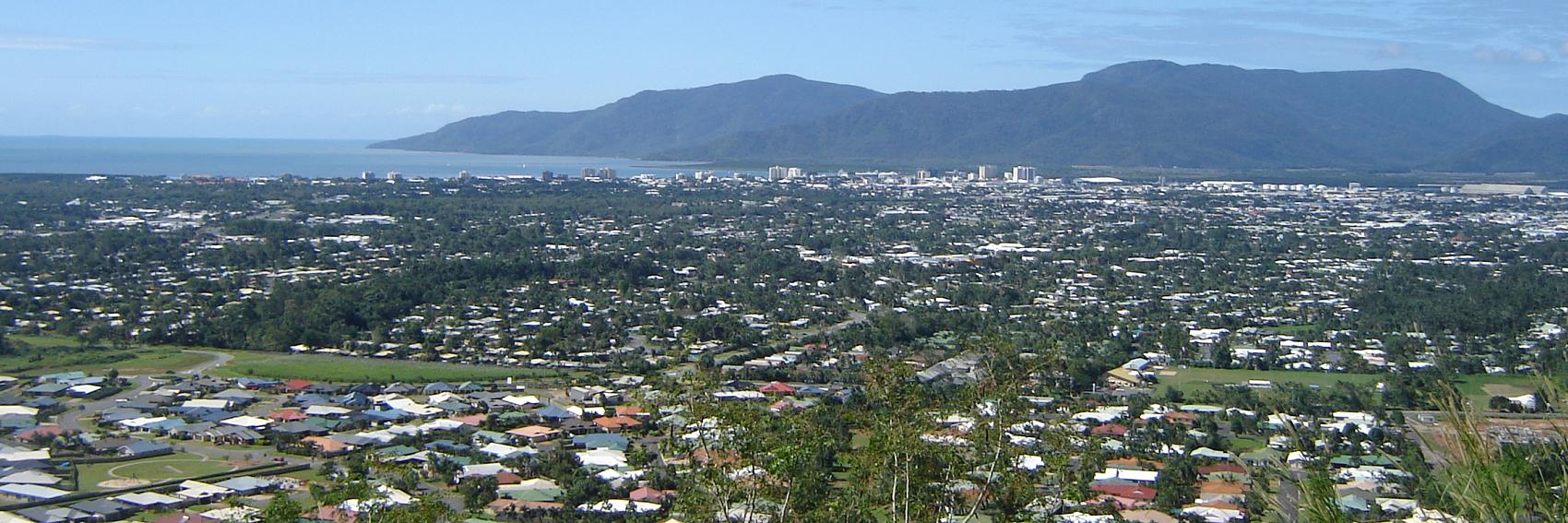Urgent call for action to fix city's critical housing shortage

Cairns needs to start building more houses and apartments sooner rather than later.
That's the view of property and development industry figures, who say the city is facing a potential housing shortage with factors such as low building approvals, the high cost of development, steady population growth and major projects all combining to create a rental squeeze in the city.
Urban Development Institute of Australia Cairns branch president Adam Gowlett and Herron Todd White analyst Rick Carr told TropicNow the city's low rental vacancy rate will have a critical impact on the future of the local economy.
There are signs the city is already experiencing a housing shortage, with Mr Gowlett saying the effects of a stressed rental market are being felt throughout the economy.
He renewed calls for Cairns Regional Council to help kickstart local construction with a targeted incentive scheme.
"A vacancy rate below 3 per cent is considered as a stressed market and we have had an average vacancy rate of about 2 per cent for at least two or three years,” he said.
The August 2017 Cairns Watch report states that rental vacancy trends had remained stable over the past six months for houses but had tightened considerably for units
“The latest trend vacancy rates for July 2017 stood at 1.8 per cent for houses, 1.6 per cent for units and 1.7 per cent for the market overall," the report states.
“Coupled with the low level of new rental supply being created due to the reduced levels of investor housing activity, rental market conditions are expected to stay tight for some time.”
HIT HARD BY NEW RULES<strike></strike>
Compounding the housing shortage, Mr Gowlett said TNQ was being hit hard by new policies and regulations on lending criteria put in place by APRA, the Reserve Bank as well as State and Federal Governments to limit investment spending in Sydney and Melbourne to try to slow the housing markets there.
“The policies and regulations are to limit investment spending and Cairns was already struggling,” he said.
“TNQ is part of a bigger market, investors have to choose where they are going to park their money and the markets in Sydney and Melbourne are running hot.
“The new rules are simply not working, they haven’t slowed Sydney and Melbourne to a great degree but they have had an adverse effect in the rest of the country, including Cairns.”
WORKERS NEED RENTALS<strike></strike>
While there has been recent good news for TNQ's jobs market, Mr Gowlett said Cairns would always need a large supply of rental properties to cater for the hospitality, part-time and casual workers who are key to our region’s tourism-based economy but can’t buy their own homes.
“The average income in Cairns is generally less than other regions like Townsville and the southeast corner due to the seasonal, casual or part-time nature of the employment here,” he said.
“People in these jobs can’t apply for a mortgage or get a mortgage so they are going to have to rent and we are putting pressure on those people to stay in Cairns to provide the services they do.
“With vacancies being so low, rents will rise and the availability of suitable rentals will diminish and this will be a problem for the whole economy.
"The increasing popularity of Airbnb in TNQ will take even more rental properties out of the traditional rental pool and make it even harder to retain enough traditional rental housing.
“I do not know what the silver bullet is and this can’t be answered easily.
“There are already some moves being made to make the regulators and governments understand that the new policies and regulations on lending rules need to be relaxed in regional areas for both Australian and overseas investors.”
CRITICAL TIME TO HEAD OFF SHORTAGE
While the rental market was currently coping with demand, Mr Carr agreed the city could face a potential housing shortage in the future if economic drivers that attracted workers to the region picked up quicker than the rental and housing construction markets.
"The construction sector is generally slow and rental vacancies seem to be the tightest on the northern beaches, which is a market that reflects what is happening more broadly in the economy," he said.
"When the northern beaches boom, the population and economy booms.
“And while rents have been increasing, we certainly haven’t seen any large-scale increases.”
With the jobs situation in Cairns improving and major projects expected to hit their employment peak in the next six to 12 months, a “real test” is coming for Cairns’ property market.
“If the jobs created are beyond the local labour market to fill it will start to stimulate population growth,” he said.
“If that population growth happens more quickly than expected and faster than construction can keep up then we could experience a housing shortage.
“It will be an economic constraint if people want to move here to fill jobs but can’t because there is no housing.
"But this is just one scenario that could play out. It is too early to tell if it will happen and we will have to wait and see.”

